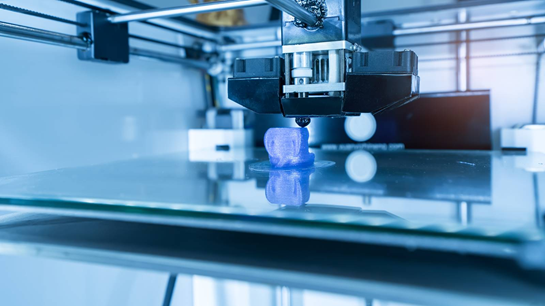Mada FabLab: 3D Printing and 3D Scanning for Assistive Technology
Research article  Open access |
Available online on: 07 March, 2021 |
Last update: 24 October, 2021
Open access |
Available online on: 07 March, 2021 |
Last update: 24 October, 2021
Mada works with its various partners and innovators to develop an ecosystem that is supportive of innovating technological solutions that promote digital access for PWDs and the elderly. In this context, Mada FabLab has launched an innovation space designed to be fully inclusive for people with disabilities and empower them by providing more access to digital fabrication technology and support services that enable entrepreneurs, researchers, and startups to develop the assistive technology field.
The development of Assistive technology services is essential to make assistive devices more accessible to individuals with disabilities. Today, the use of 3D Printing is an affordable method to design and manufacture customized assistive technology to provide a better quality of life to people with disabilities. Generally, 3D Printers are becoming more accessible and more common within workplaces, homes, public libraries, and museums. Additive manufacturing is increasingly taking innovative approaches to create new assistive devices with new design like wheelchairs.
What is 3D Printing?
It is also referred as Additive manufacturing or Digital fabrication technology; it uses successive layers addition of materials to create a physical three-dimensional object from a digital geometric representation. In other words, the 3D Printer fabricates objects by deposing layer by layer material directly from a Computer Aided Design (CAD) file. Nowadays, additive manufacturing technology is widely used in a variety of fields all over the world. 3D Printing is a rapidly emerging technology as its been utilized in large industrial segments such as, automotive industry, customized production, aviation industries, agriculture, and healthcare sector.
How is 3D Printing making a huge impact in developing the assistive technology services?
Recently 3D printers made prosthetics and assistive devices more accessible than ever, the technology became affordable with a reasonable price and high quality of printing. Even people who do not have access to 3D Printing they have been able to use inexpensive 3D printed assistive device and prosthetics provided by companies and individuals. One such example is a project that was launched by a US-company called “NOT Impossible Labs” that provided 3D printed prosthetics arms for amputees in war-torn Sudan. In fact, the company released the technology of the 3D printed arms for free and made it open source, in the hope that it will inspire other projects and help more than 50,000 people who have lost limbs due to conflicts.

Many other organizations have focused their attention on how to make assistive technology more accessible to people with disabilities. Fab Labs have succeeded in creating more accessible and participatory communities sprung up around 3D printed assistive device. There are approximately over 1500 Fab Labs all over the world providing access to 3D Printers, low-cost material and open-source designs that helped promote innovation in assistive technology.
Today, 3D printers use a variety of material which has allowed manufacturers to produce reliable lightweight devices. These devices are easily customized based tailored to the user needs and comfort with only using a CAD open source platform. The adoption of 3D printing has made the availability of prosthetics and assistive device extremely easy and fast, which reduces the recovery time and give a better quality of life for the disabled individuals. One such example, a 3D printed assistive device that helps people with arthritis to reduce dexterity. This tool takes almost an hour to be printed and it can be attached to the home key to help reduce the grip strength needed to unlock doors. Additionally, there are more simple 3D printed designs that can help people with limited control of their hands, like Pen holders, Cup holders and spoon supporters.
In conclusion, no one can deny that the benefits of 3D Printing in the field of assistive technology are almost limitless, and every day we are witnessing more developments in the additive technology field which will have a positive impact on PWDs inclusion.
The launch of Mada Fab Lab came as a result of the center’s commitment to promote innovation and achieve full inclusion of PwDs and the elderly in their communities by adopting and supporting the use of latest technological innovations in this field.
